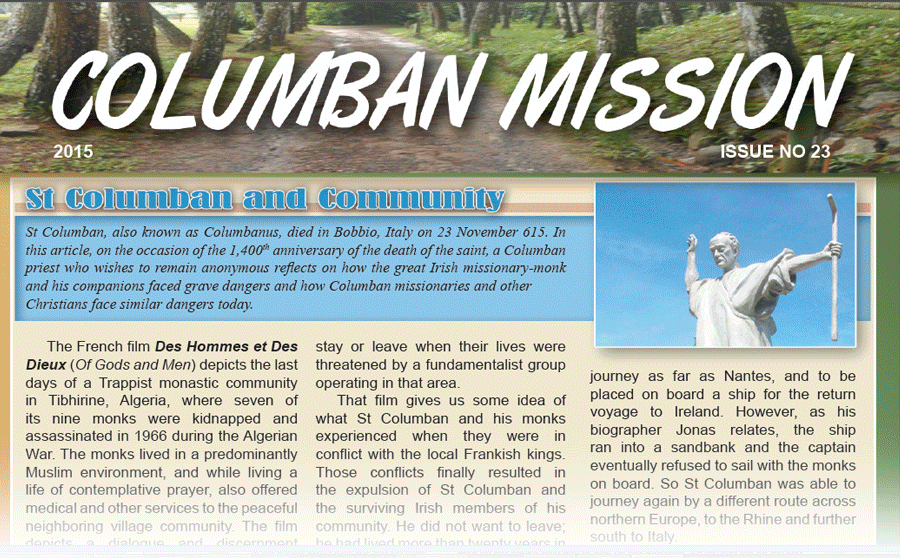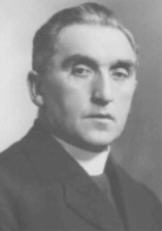Misyon Online - July-August 2014
Pulong ng Editor
Being at home
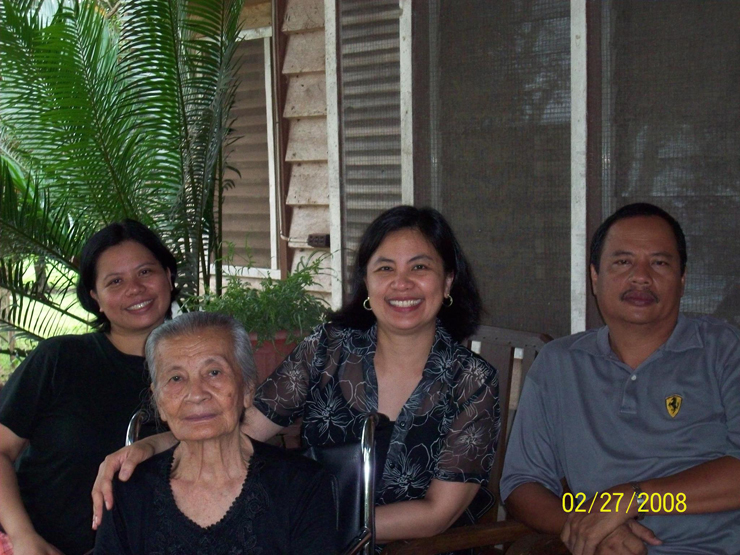
Beth Sabado, left, with her sister Gondee, brother
Felix and their mother, Pacita.
Beth Sabado, Coordinator of the Lay Missionary Central Leadership Team (LMCLT) of the Columbans, writes in Where is Home? in this issue of the question that faced her as the plane in which she flew from Hong Kong to Manila in February 2013 was about to land: ‘Where is home for me now?’ She was on her way to attend the funeral of her mother, Pacita Egipto Sabado. Her father, Telesforo, had predeceased Pacita.
Read story...


Peace by Peace
Not easily shall one reach this height; it is no child’s play, nor the work of a day to turn with a decisive gesture from the allurements of life. It costs blood to stand the strain and overcome the repugnance of nature. When we bend our minds to this prayer and say it earnestly, we seem to hate ourselves and in the eyes of worldly men to act foolishly and give an opening for the charge of folly. ‘Unto the Gentiles folly’, utter folly to neglect the passing joy, to allow the flower of the time to pass by us. Yet looking on Christ we shall willingly accept such opprobrium. So sure are we of the goodness of the heart of God that we can wish for nothing better nor plan for anything more secure than what his Divine Heart wills, for never is a man so utterly right, so sure of blessings, as when he says this prayer – ‘Our father . . .thy will be done . . .’ -Pathways to God, Fr John Henaghan, MSSC |
Read story...

Keeping Father Niall’s legacy alive: After 10 years, now and beyond
By Richelle Verdeprado
The author is Editorial Assistant of Misyon
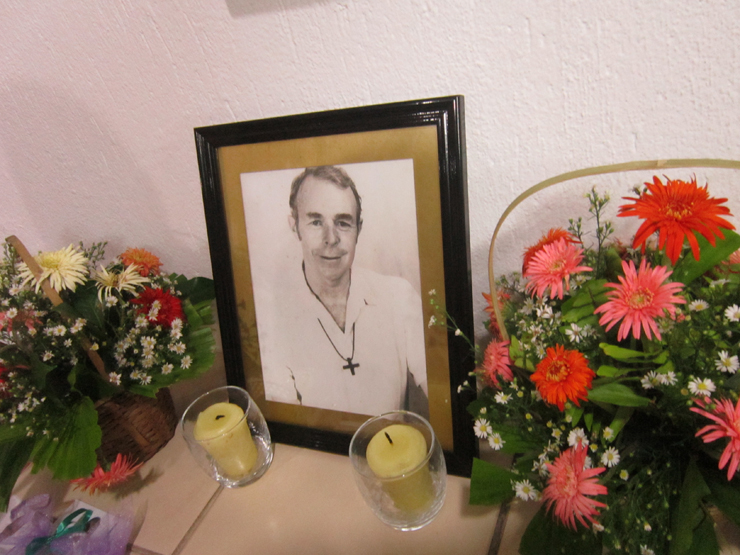 We are not immortal beings. In as much as we would want to do amazing things unceasingly and never leave the people that we love, we cannot live forever. Perhaps this is how it really goes in our human lives. We will have years of celebrating our birthdays until one day others will be starting to commemorate our death anniversaries instead. While still breathing we can have moments of learning, enjoyment and discovering until one day we can no longer do them again.
We are not immortal beings. In as much as we would want to do amazing things unceasingly and never leave the people that we love, we cannot live forever. Perhaps this is how it really goes in our human lives. We will have years of celebrating our birthdays until one day others will be starting to commemorate our death anniversaries instead. While still breathing we can have moments of learning, enjoyment and discovering until one day we can no longer do them again.
But I think too, it is that same mortality that can make our lives even more precious. It is that same mortality that will give us enough time to bring joy and hope, to make choices and changes that can go beyond our own lives and have an impact on one individual or even on the entire community and the world. Likewise, it is that same mortality that can cause some people meet each other while others never get that chance. There is a time element in life.
The Kibbutz on Tall Grass Mountain, which shows one of the major initiatives of Fr Niall O'Brien, was produced by the Columbans in the USA in the 1970s, during Martial Law in the Philippines.
Read story...

His Children’s Hero
By Richelle H. Verdeprado
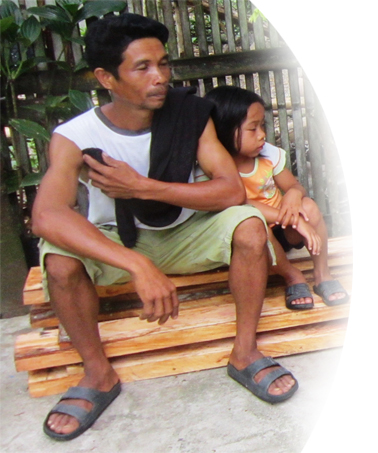 The journey from the hinterlands of barangay Sanke, Hinoba-an, Negros Occidental, to the village proper by the sea, was like a Sunday get-together for the Layan family. Tatay Hermenio was with five of his five children, his wife, pregnant with their seventh child staying at home.
Our Kwaderno team was set to have notebook distribution at 9 am that 25th day of May but Tatay Hermenio was already there before 7am. To get there, the Layans had to pass by several mountains, cross a river and then walk about an hour.
The journey from the hinterlands of barangay Sanke, Hinoba-an, Negros Occidental, to the village proper by the sea, was like a Sunday get-together for the Layan family. Tatay Hermenio was with five of his five children, his wife, pregnant with their seventh child staying at home.
Our Kwaderno team was set to have notebook distribution at 9 am that 25th day of May but Tatay Hermenio was already there before 7am. To get there, the Layans had to pass by several mountains, cross a river and then walk about an hour.
It wasn’t just for the notebooks that his children would be receiving that day. Tatay Hermenio had a deeper purpose, I could sense it in his eyes. I could see that for the education of his children, he would do anything.
The family of Sanke’s barangay captain served breakfast to the Layan Family, knowing that they had had a long and difficult journey. Eleven-year-old Chona, the eldest among them was interviewed by Irene, one of our volunteers. Chona was shy but she responded to the questions politely. There was a certain glow in her eyes when she shared that her happiest moment was when she received a service award in their school this last year. In Junethis year started in Grade Five. She was excited to start the school year as she has recognized that there are so many things to be learned in school.
Read story...

What Comes After Dusk
By Anne Gubuan
The author, assistant editor of Misyon, writes about Kwaderno , a project that the editorial staff of the magazine and friends of theirs initiated to buy school notebooks for children in impoverished areas. ‘Kwaderno’ is a Filipinized form of ‘cuaderno’, a Spanish word for ‘notebook’. The project was inspired to some degree by the involvement of some of the group with a school that was devastated last November by Super-typhoon Haiyan/Yolanda. You can read more about that in Misyon in the May-June issue, In the Midst of a Storm.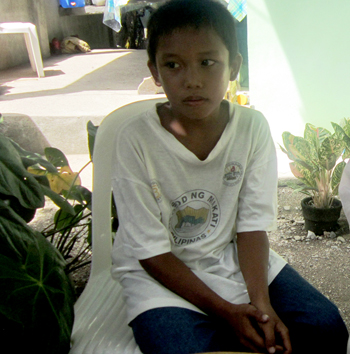
Marvin is 11 years old, but looks like he is only eight. His hands are riddled with bruises and marks which tell of his long days under the heat of the sun, toiling on the farm. He was wearing an old, almost worn-out, shirt and oversized pants that nearly reached his ankles. As soon as I asked him my first question, he hung his head and tears fell on his knotted fingers. It wasn’t easy to go ahead with my carefully lined up questions. They got all jumbled up inside my head, as I struggled not to cry with this little man, who needed all the encouragement he could get. Yes, ‘little man’, for all the burdens that his small frame carries, for the heart he has, brave and courageous amidst all the hardships, pains and uncertainties in life that he has to face each day.
‘Where do you live?’ I asked,careful not to intimidate him. ‘I live with my grandfather’, he answered meekly, still looking down, trying to stifle his tears. ‘You don’t live with your parents?’
Read story...

Where is Home?
By Beth Sabado
The author, from Pagadian City, Zamboanga del Sur, Philippines, is a nurse by profession and has worked as a Columban Lay Missionary in Taiwan. She is currently based in Hong Kong as Coordinator of the Lay Missionary Central Leadership Team (LMCLT).
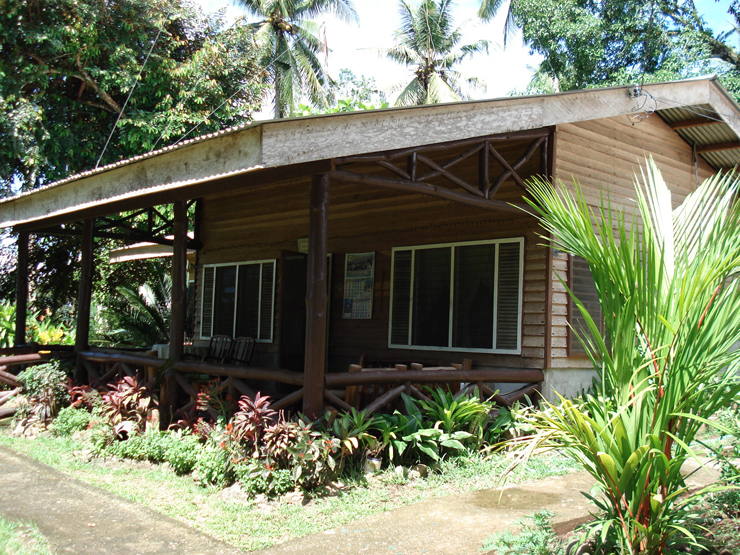 I had the chance to watch a stage play in Birmingham Repertory Theatre entitled ‘Refugee Boy’. A story about a fourteen-year-old boy born of an Ethiopian father and Eritrean mother and because of a violent civil war back home his father made a heartbreaking decision to leave him in London.The boy woke up one morning and his father was gone. As described, ‘Refugee Boy’ is a story about arriving, belonging and finding a home.
I had the chance to watch a stage play in Birmingham Repertory Theatre entitled ‘Refugee Boy’. A story about a fourteen-year-old boy born of an Ethiopian father and Eritrean mother and because of a violent civil war back home his father made a heartbreaking decision to leave him in London.The boy woke up one morning and his father was gone. As described, ‘Refugee Boy’ is a story about arriving, belonging and finding a home.
‘A home is a place where I can unpack my luggage down to the very bottom’. This is how one of the refugees in the playdefined a home. Her definition stayed with me from then on.
Read story...

Learning ‘Poco a Poco’ in Honduras
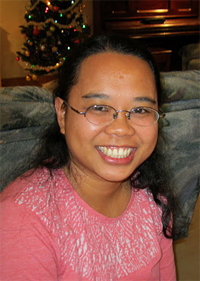
By Mary Ann Ofialda
The author, from Iloilo City, is working as a lay missionary in Honduras with the PME Fathers. She worked as a Columban Lay Missionary from August 2003 to April 2006 in Taiwan. In July 2012 she was assigned to Tegucigalpa, the capital of Honduras. Currently, she is workingas a volunteer ata home for the aged, Hogar de Ancianos Maria Eugenia, and in Casa Ángeles, a home for abandoned/orphaned children with severe physical and mental disabilities, and the mission animation project, Ad Gentes. Mary Ann worked in Taiwan as a Columban Lay Missionary from August 2003 to April 2006.
 ‘One doesn't discover new lands without consenting to lose sight, for a very long time, of the shore.’– André Gide.
‘One doesn't discover new lands without consenting to lose sight, for a very long time, of the shore.’– André Gide.
In 2011, when I was accepted into the second level formation in Davao del Sur of the Société des Missions-Étrangères or the Foreign Mission Society of Quebec, known in the Philippines as the PME Fathers, I felt that I had taken a very significant step, venturing out to a unique kind of calling. It was a decision that took a lot of personal discernment, reflection, gradual detachment from my comfort zones as well as support and counsel from my family and close friends. My four months' experience during formation among the B’laan people in the mountains of Little Baguio, Davao del Sur, was a memorable story in itself.
Read story...

Opening of First Contemplative Monastery in China since 1949
The following press release was published in May and has been slightly edited. Columban Fr Eamonn O’Brien, Director of Cultural Exchange with China (CEC) is from Ireland and spent his early years as a priest in the Philippines.
 On 1 May the feast of St Joseph the Worker,the monastery of St Augustine was opened in Lintou, in the Shan Xi Province of China. This is the first contemplative monastery to be opened in China since1949.The monastery and associated nursing home will be known as St Augustine's Garden.
On 1 May the feast of St Joseph the Worker,the monastery of St Augustine was opened in Lintou, in the Shan Xi Province of China. This is the first contemplative monastery to be opened in China since1949.The monastery and associated nursing home will be known as St Augustine's Garden.
St Augustine's Garden was opened by Bishop Paul Meng (Diocese of Taiyuan). The opening Mass was concelebrated by Bishop Wu Jin Wei (Diocese of Yun Cheng) and approximately 50 priests, with over 1,700 Catholic lay faithful in attendance. The two-hour Chinese Mass was full of joy and thanksgiving.The monastery chapel was opened and consecrated by Bishop Wu Jin Wei the previous evening.
Read story...

Our Hideaway
Passion Is The Key
by Stephen Virtudazo Tabal
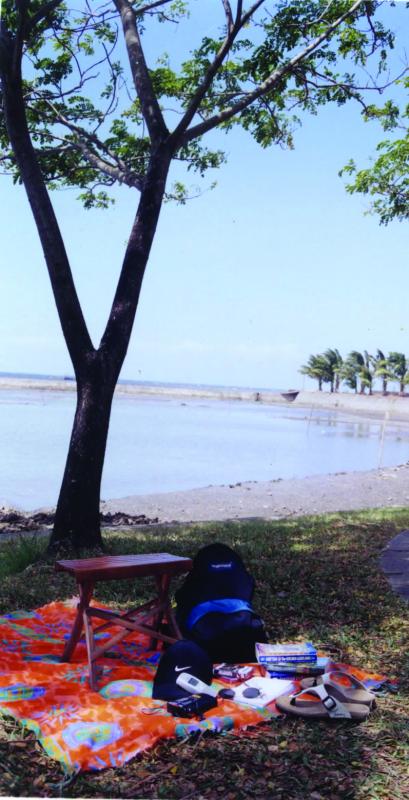
Our Hideaway is a
venue for the youth to express themselves and
to share with our readers their mind, their heart and their soul.
The author teaches physics in Lanao del Norte National Comprehensive High School (LNNCHS), Baroy, Lanao del Norte.
‘Teaching is not a profession but a passion’, it has been said. I didn’t realize this until I was employed in a public high school. It is totally different from the schools where I used to teach. It seems like I’m in a parallel universe and I feel that I need a lot of adjustment to before I can teach well.
 One day I assigned my students to bring candles for our optics activity in physics. Fortunately it went well and the students enjoyed it much. After the activity, a student named John (not his real name) approached me and said, ‘Sir, may I have the candles used in our activity?’ I paused for a while and asked, ‘Why?’ With head bowed down he answered, ‘I will use them to light our house so that I can work on my assignments’. I couldn’t believe what I had just heard. Up till then almost every person I met on the street had a smartphone and tablet. But there are still areas in our country left in the dark not because of blackouts but because of extreme poverty.
One day I assigned my students to bring candles for our optics activity in physics. Fortunately it went well and the students enjoyed it much. After the activity, a student named John (not his real name) approached me and said, ‘Sir, may I have the candles used in our activity?’ I paused for a while and asked, ‘Why?’ With head bowed down he answered, ‘I will use them to light our house so that I can work on my assignments’. I couldn’t believe what I had just heard. Up till then almost every person I met on the street had a smartphone and tablet. But there are still areas in our country left in the dark not because of blackouts but because of extreme poverty.
After a week the rainy season came and many of my students were absent. John came in five minutes late and wasn’t wearing his uniform so I approached him and he said, ‘Sorry, Sir. I had to remove my uniform because I was soaked but I can still put it back on. It’s in my bag. I wrapped it in cellophane.’
Read story...


